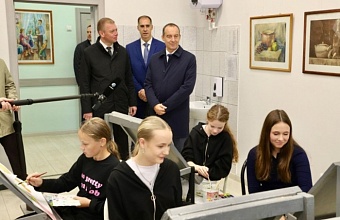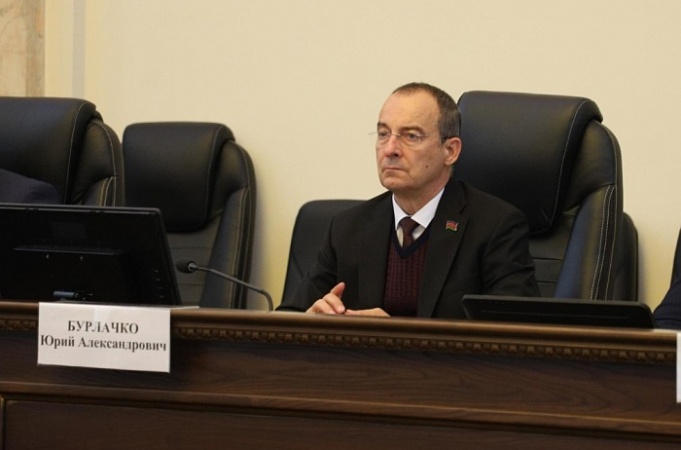Krasnodar, October 15 — A strategic session titled “On the Progress of Implementing the Strategy for Socio-Economic Development of Krasnodar Krai until 2030, Development Prospects” was held at the Legislative Assembly. It was chaired by the Chairman of the Kuban Parliament.
The session was attended by the First Deputy Head of Kuban, the Chairman of the Control and Accounts Chamber, acting heads of executive authorities, experts, representatives of public organizations, and the Council of Young Deputies.
As noted by the Chairman of the Legislative Assembly, the regional law on the Strategy-2030 was developed in 2018. During its preparation, new global challenges were not taken into account.
— The Government has approved a Unified Plan for achieving Russia’s national development goals until 2030 and for the period up to 2036. It defines long-term objectives for transitioning to a sustainable trajectory of economic growth and rising incomes, increasing birth rates and life expectancy, and ensuring technological sovereignty. Accordingly, we need to analyze the interim results of our Strategy’s implementation and update the document, taking into account the specifics of the region and forecasted needs, — emphasized the Chairman.
The First Deputy Head of Kuban stated that Strategy-2030 is a fundamental document. He noted that during its implementation period, growth has been recorded in six basic sectors of the region’s economy, ranging from nearly 5% in construction to 37.6% in retail trade. The Gross Regional Product has increased by 23.5% since 2018.
The interim results of the Strategy-2030 implementation were presented by the acting Minister of Economy. For instance, from 2018 to 2024, the nominal volume of the GRP increased from 2.5 to 5.5 trillion rubles. Of all the strategic goal indicators, 68% in the reporting period were exceeded compared to the inertial and baseline scenarios. Key instruments for implementing the document include regional state programs. According to last year’s results, the share of completed activities in their implementation efficiency assessment was 93.5%. The level of achievement for national projects is nearly 100%.
The Chairman of the Committee on Financial, Budgetary, Tax, and Economic Policy reported that the dynamic development of the economy has ensured growth in the regional budget’s revenues. This has made it possible to maintain and expand social support measures for the region’s residents.
According to the head of the Legislative Assembly Committee, a favorable investment climate has been created in Kuban. However, problems affecting investor activity persist. These include the availability of spare capacity in electricity and gas supply networks, staff shortages, and others.
In conclusion, the head of the regional parliament noted that the assessment of the Strategy’s implementation pace took place during a very challenging time.
— Today’s discussion showed that the regional economy has coped with all challenges. The region not only withstood but also achieved positive dynamics in a number of key areas. Meanwhile, today we face new challenges. The conducted analysis showed that Kuban has accumulated sufficient potential to overcome them. We have all the opportunities and economic leverage to neutralize all negative trends already in the first quarter, — said the Chairman.
The Chairman of the Legislative Assembly also drew attention to the need to intensify and strengthen the interaction between the parliament’s committees and the sectoral executive authorities.







